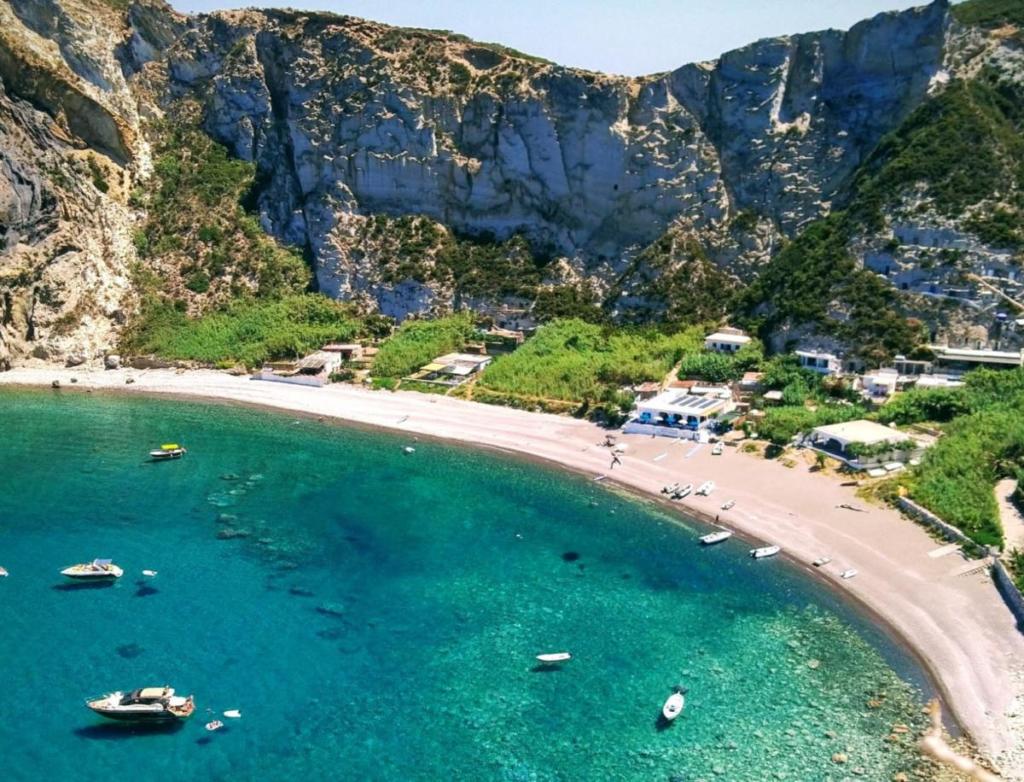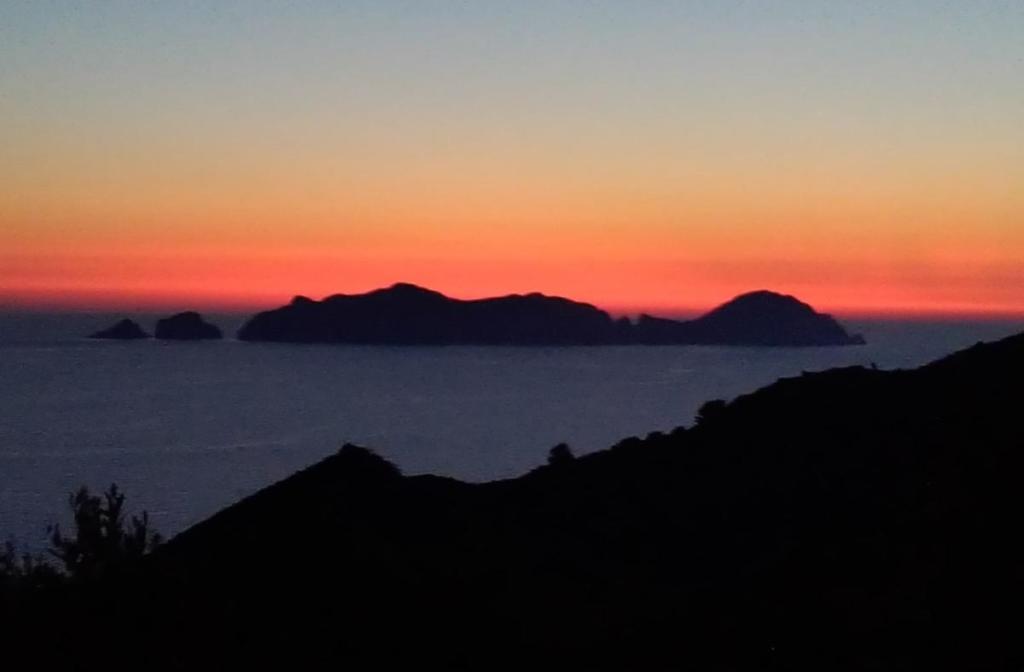The geological study of rocks and deposits traces the birth of Ponza between the end of the Tertiary and the ancient Quaternary.
The formation of Ponza and all the other islands of the archipelago would also have occurred through a process of lava eruptions that lasted at least 500 thousand years.
[caption id="attachment_115850" align="center-block" width="750"] Picture by Fabio Tomei[/caption]
Picture by Fabio Tomei[/caption]
Its geographical position in the Tyrrhenian Sea made the island a strategic stop for supplies, first by the Phoenicians, then by the Greeks (hence the name Eea as Homer attests in the Odyssey) and finally by the Romans.
During the Augusteo period it was a "tourist" place frequented by important imperial families.
On the island there are many sites where Roman remains can still be appreciated such as Roman cisterns, aqueducts and the Roman tunnel connecting to the famous Chiaia di Luna beach.
But now let's move on to one of the many modern stories of our Ponzesi friends.
We know that the Ponzese Marine has for years had one of the largest fishing fleets in the whole nation.
We can find stories and lives of Ponzesi sailors in many Mediterranean coasts, from Tuscany to Sardinia, from Sicily to North Africa.
It is said that their mastery has enabled them to create and transmit many of the fishing techniques that are still used, such as the one that permits the capture of swordfish, that of deep bottom fishing for the search for the so-called "pezzogne" (occhione in Italian and Bass in English - in my opinion the best fish in the world) and to finish the "lead guard" technique capable of baiting large yellowtails and deep water snappers.
The latter was invented by a Ponzese doctor, by the great "Don Ferdinando" Scarpati, but this is another story ...
The story I am telling you today is that of Silverio Aversano, called Patalano:
"He was an old man who fished alone on a boat in the gulf stream and 84 days had passed since he had caught the last fish"
(The Old Man and the Sea - E. Hemingway).
I wanted to start like this, just to describe the great Ponzese fisherman's love for the sea.
Those who know Silverio know that he has been sailing the sea for 70 years and he still does it having exceeded 80 with the strength and enthusiasm of all time.
The peculiarity of "Patalano" lies in the fact that he is the only Ponzese fisherman who does not use any technology to fill the nets: I speak of depth sounder and GPS, which nowadays all fishermen use to find the right sea points and the most fish shoals.
Silverio is like this, he is resistant to technology, visual references are enough for him.
The love and passion for the sea were transmitted to him by his father Pietro who took him, albeit very young, to seek his fortune in the Tuscan seas.
We are talking about a particular historical period, the post-World War II period, very hard years that felt more intense in Ponza given the scarce resources present on the island.
At that time the little Silverio sailed the Tyrrhenian Sea from Ponza to Piombino to fish for the "castaurielli" (mackerel) which allowed the Aversano family to "see out" the season.
Patalano in his stories accurately describes the bartering carried out by his dad and the crew, exchange operations that allowed them to obtain demijohns of wine, from the Tuscan peasants, in exchange for the spider crabs (called "felloni" in Ponza) caught with their nets.
Silverio's turquoise eyes light up recalling the preparations of the dinners.
For the occasion, the "focarone" was prepared in the bow of the boat (it is a little fire lit with wood taking care to insert a metal plate underneath it so as to preserve the boat from the flames) which was used to cook the pasta.
These rites, repeated month by month, season by season, guaranteed the necessary sustenance for the Aversano family and those of the crew.
Today Silverio continues to sail the sea for himself and for all of us, because it is surprising to see an 80-year-old getting on and off his boat with the agility of a boy.
[caption id="attachment_115853" align="center-block" width="750"] Picture by Fabio Tomei[/caption]
Picture by Fabio Tomei[/caption]
Arriving in Ponza you can recognize Patalano from his eyes, because
"The man who knew the sea [...] preserves its wonder in his gaze"
(from The barefoot widow of Salvatore Niffoi).







Follow us